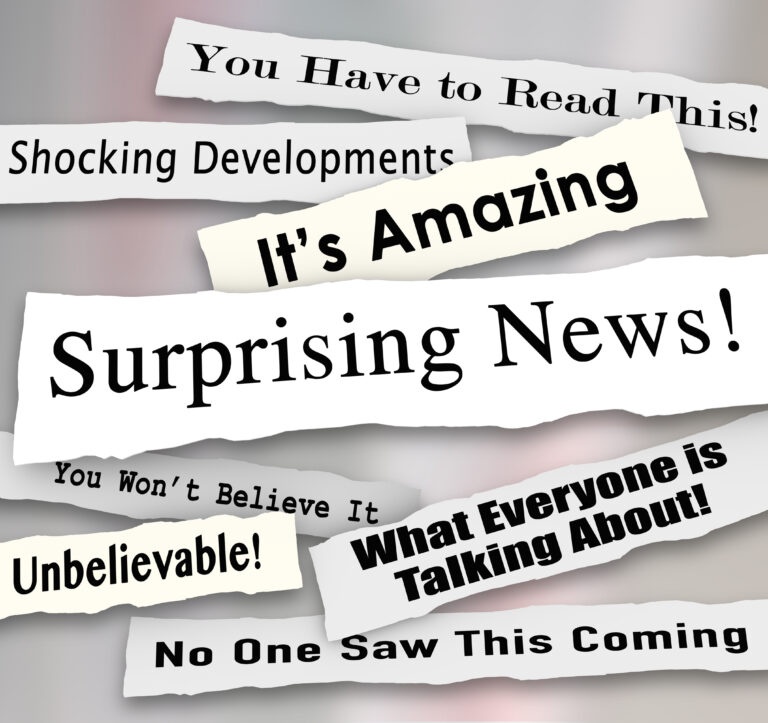How the Next “Shock and Awe” Headline Could Impact Your Business
Food businesses have long had to deal with sensationalized and overhyped media and social media reporting of food “contamination” issues – be it the alleged “shrimp tails” in cereal that went viral, or an actual recall that gets blown out of proportion. But COVID brought with it a whole new aspect of shock and awe media.
Take, for example, the recent article warning against the premature relaxing of COVID-19 restrictions. While that caution is indeed warranted with the increase in transmission of the Delta variant, the article then focuses in on children stating that “there is no guarantee that the virus won't evolve the ability to infect children” and “new variants are relatively more often found in younger age groups” so “relaxing restrictions while children are not vaccinated, risks inadvertently selecting for virulent variants that are better able to infect children and are also more problematic in vulnerable groups.”
Whether talking food safety or infectious disease protections, it is essential to read between the lines of any report – be it media, social media, or “scientific” research. We are in an age wherein it is critical to question everything, to check sources and the publication dates, and to recognize that, beneath it all, life and times evolve – as does our understanding of it all.
We’ve seen this with both COVID-19 and food recalls:
- COVID-19. What we know about this virus and its transmission today is vastly different than what we knew a year ago – or even a month ago. Not only has the virus evolved, with numerous variants, but so too has our understanding of it and the protections needed. Yet, viral messages abound, particularly in social media, referencing outdated or non-science-based information to support anti-mask, anti-vaccine, even – still – anti-pandemic claims.
- Food Recalls. When a foodborne illness outbreak is first detected, little is generally known of its cause or source. It is only through a thorough investigation and traceback that these can be accurately determined – and even then, the root cause can evade investigators. This does not, however, stop the presumptions and judgments from being widely disseminated in editorials and social media, based on little more than hearsay or someone else’s unfounded post.
In both cases, distorted messages from media and social media can have a significant negative impact on businesses. Whether it be convincing your employees of the continuing need to protect themselves and each other from the resurgence of COVID cases caused by the Delta variant – in order to protect your employees and business as whole. Or whether it’s maintaining the communication reins on an outbreak in which your product has been implicated – in order to protect your brand reputation.
What can you do? The first step is ensuring that news that you follow and/or repeat is from a recognized authority and is current. While some science remains true over time – such as the validity of handwashing to reduce contamination and illness, other information continues to change and evolve as more is learned and understood.
The second step is ensuring that you are communicating the facts to the greatest extent you can discern them. If you don’t know all the facts, make it clear you are making statements on what you actually know. With the lack of accountability of Internet communications, completely false and unfounded information can be widely circulated through multiple channels. So, again, whether it be communicating with your employees on COVID and other workplace infectious diseases, or with the media and on your own social media to provide the actualities of a recall or other crisis, it is critical that businesses stay informed and informing to keep your business off the next “shock and awe” headline.
Sadly, we have reached a point where the idea of using media to scare people has become way too common. Often as situations evolve, we don’t know all the details and have to work with what we know. But when stories are written about what may happen with no evidence that it is actually happening, these stories have a habit of turning into what will happen –sending many into a stressful and unhelpful state of fear.






